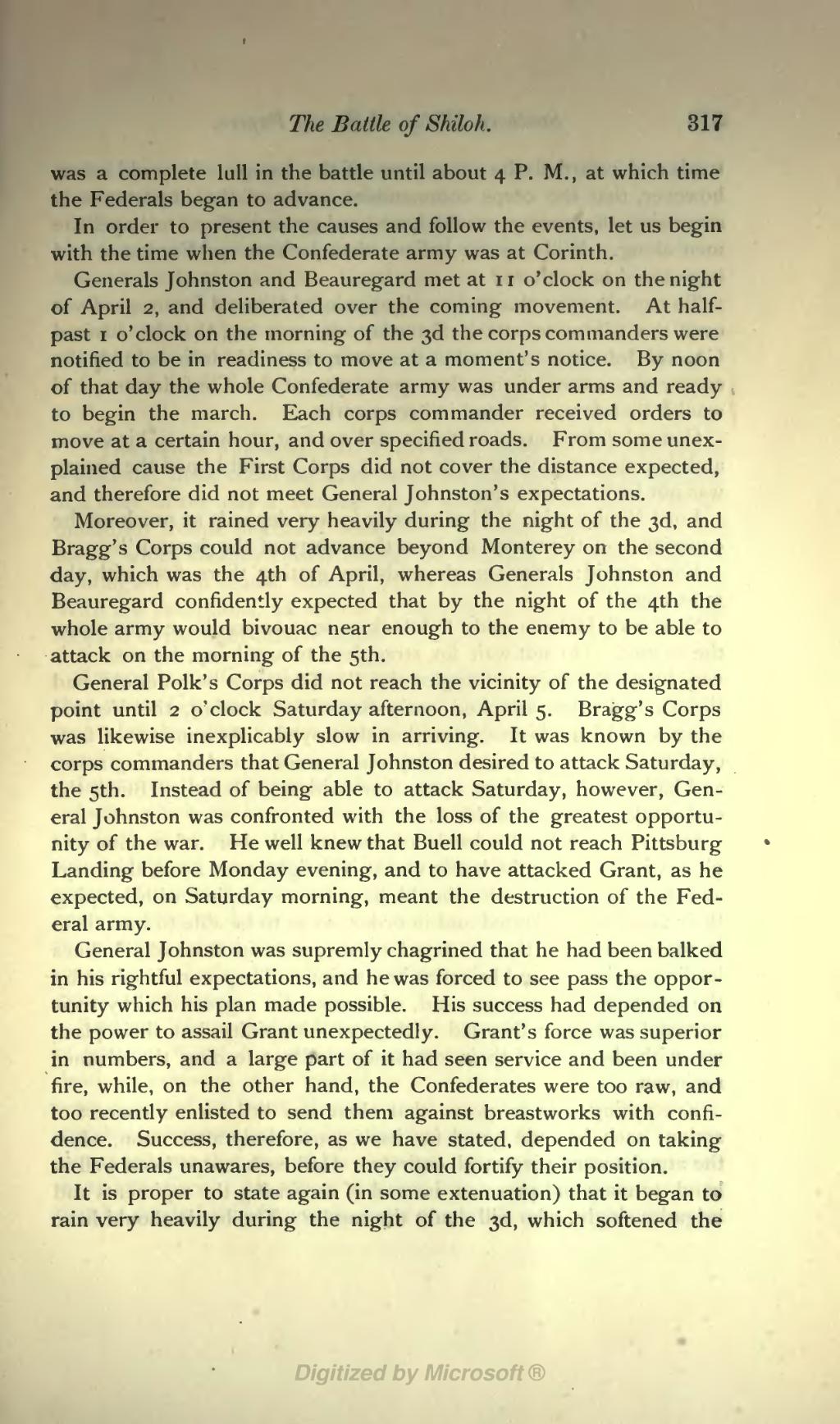The Battle of ShM. 317
was a complete lull in the battle until about 4 P. M., at which time the Federals began to advance.
In order to present the causes and follow the events, let us begin with the time when the Confederate army was at Corinth.
Generals Johnston and Beauregard met at u o'clock on the night of April 2, and deliberated over the coming movement. At half- past i o'clock on the morning of the 3d the corps commanders were notified to be in readiness to move at a moment's notice. By noon of that day the whole Confederate army was under arms and ready to begin the march. Each corps commander received orders to move at a certain hour, and over specified roads. From some unex- plained cause the First Corps did not cover the distance expected, and therefore did not meet General Johnston's expectations.
Moreover, it rained very heavily during the night of the 3d, and Bragg's Corps could not advance beyond Monterey orr the second day, which was the 4th of April, whereas Generals Johnston and Beauregard confidently expected that by the night of the 4th the whole army would bivouac near enough to the enemy to be able to attack on the morning of the 5th.
General Folk's Corps did not reach the vicinity of the designated point until 2 o'clock Saturday afternoon, April 5. Bragg's Corps was likewise inexplicably slow in arriving. It was known by the corps commanders that General Johnston desired to attack Saturday, the 5th. Instead of being able to attack Saturday, however, Gen- eral Johnston was confronted with the loss of the greatest opportu- nity of the war. He well knew that Buell could not reach Pittsburg Landing before Monday evening, and to have attacked Grant, as he expected, on Saturday morning, meant the destruction of the Fed- eral army.
General Johnston was supremly chagrined that he had been balked in his rightful expectations, and he was forced to see pass the oppor- tunity which his plan made possible. His success had depended on the power to assail Grant unexpectedly. Grant's force was superior in numbers, and a large part of it had seen service and been under fire, while, on the other hand, the Confederates were too raw, and too recently enlisted to send them against breastworks with confi- dence. Success, therefore, as we have stated, depended on taking the Federals unawares, before they could fortify their position.
It is proper to state again (in some extenuation) that it began to rain very heavily during the night of the 3d, which softened the
